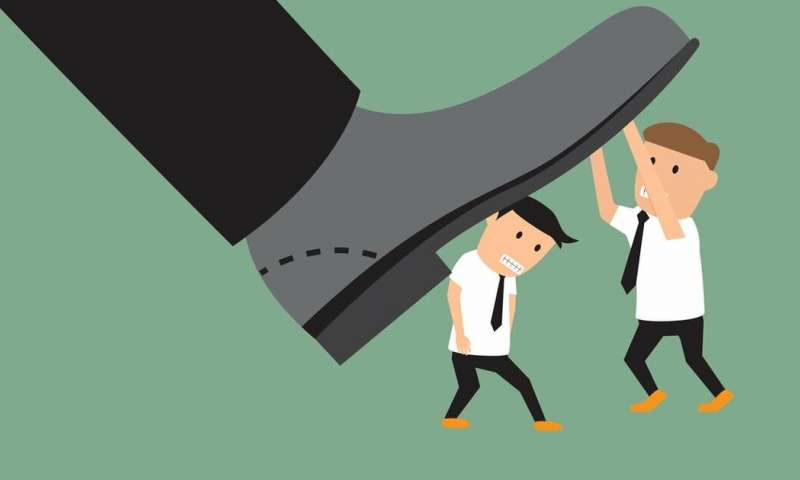“Wellbeing is not just being physically active. Let’s talk about mental wellbeing”

I’ve spent about two hours looking on the internet for wellbeing initiatives in the UAE (I’m not sure how my employer feels about that), and I can’t help but feel the juxtaposition of being both over and under-whelmed.
So, what made me overwhelmed? The UAE, and the companies within it, are great at promoting active residents and employees. There are many articles from national newspapers outlining the government’s initiatives for the future (the National Wellbeing Strategy 2031), as well as what has been prominent in the past; I see an abundance of initiatives from companies that achieved awards, that have improved the happiness of their workforce; that promote a healthy lifestyle and physical activity. It’s amazing to consider the way people are brought together by some of these initiatives. To name but a few: Dubai Fitness Challenge (30 minutes activity for 30 days – get that sports gear dusted off, it’ll be here again at the end of October); Dubai Holding Burj Al Arab Swim; Spinneys Dubai 92 Cycle Challenge; Abu Dhabi Sports Council Triathlon Festival; and even the Al Ain Zoo Run.
But here lies my problem, and why I was also underwhelmed. I see so much focused on a healthy lifestyle and exercise, but I rarely see anything that promotes positive mental health, which is one of the three pillars of good wellbeing.
If you seek answers from the general population of UAE (currently 87% being foreign residents) as to what they believe wellbeing to be, I guarantee that a large percentage would hover on the physical side, including healthy eating. But why do we associate wellbeing with the physical elements and not consider the other two; social, and mental?
Quite often we think of wellbeing as physical activities that, when initiated, lead to an improvement. However, wellbeing encompasses three major factors: physical, mental and social. As already evidenced above, physical wellbeing is well on its way to being a staple part of the UAE lifestyle where social activities are commonplace, which is fantastic! From a corporate perspective, we are however, lacking a focus on the third pillar of wellbeing, mental wellbeing of our team members and colleagues.
The biggest factor of not including mental health as part of a company agenda is the fear of saying the wrong thing and the lack of knowledge around the subject. Of course it’s certainly supportive of the mental health pillar of wellbeing to be active, as exercise releases endorphins which make us feel better (so does chocolate, but it’s not as good for you), but we need to be doing more to educate our employees about common mental health issues; what causes them; and how they can be supported or avoided.
The problem I’ve encountered during my research is that there’s not a huge amount of information in the UAE at the moment. The government is absolutely driving the agenda and moving forward with initiatives such as the National Programme for Happiness and Well-Being and The National Policy for the Promotion of Mental Health. It’s not the strategies at this level that are missing so much as access to information and self-help that is very much in demand.
With this in mind, I’ve decided to give a very basic overview of two of the most common mental health problems, anxiety, and depression. I will outline some of the symptoms you may be able to see, and what you can do to help yourself, or others, to make a small difference.
Mental Health
Firstly, it’s important to let you know that we all have mental health, just like we have physical health. Just like physical health, we can sometimes be in great physical health, and other times be can be in poor physical health. To beat the stigma surrounding mental health we have to use the correct words and phrases. If someone is living with bipolar disorder, they don’t have ‘mental issues’, they are not ‘crazy’, they are simply experiencing mental ill-health, or have a mental health condition, just like diabetes is a physical health condition.
According to the World Health Organisation, 1 in 4 of us are likely to experience mental ill-health in our lifetime, so it’s good to understand it and be understanding of it.
Before we go any further, I must point out that the information below will not enable you to diagnose yourself, friends and family or colleagues, these are simply ways for you to notice potential signs and symptoms. Always seek help and advice from a medical professional who is trained to give guidance and diagnosis when appropriate.
Anxiety
Anxiety is something that we all experience, and similarly to depression, it’s often used in the wrong context. Anxiety is a natural response to stressful situations and evokes the flight, fight or freeze response in our bodies. It’s that job interview or exam that makes your heart beat faster, your palms sweaty and experiencing nausea. That’s the feeling of being anxious. It’s completely natural, and most people it usually passes quite quickly.
For some people however, that feeling either doesn’t pass, or they experience these symptoms regularly, or in situations that wouldn’t usually bring about an anxious feeling such as driving to work. If you’ve never felt this way about driving to work.
This is the condition of anxiety. It’s ok to say you sometimes feel anxious, but not that you ‘have anxiety’ or ‘got anxiety’ unless you’ve been diagnosed. It is estimated that around 4.8% of the UAE population have diagnosed Anxiety Disorders1.
Signs of Anxiety

Depression
Depression has unfortunately become such a commonplace word, that we incorrectly use it when we actually have low mood. Like feeling anxious, we all experience low moods at one time or another, but this is not depression or feeling depressed. Depression is a clinically diagnosed condition that requires an individual to feel in a constant low-mood state, as well as other symptoms, for a period of two weeks or more.
Most of us can do something to shake a low mood such as exercise (see, the physical pillar of wellbeing is important, but not the only thing), talking to others, doing something we enjoy and socialising (the social pillar of wellbeing).
Depression is not just low mood, it has psychological, physical and social symptoms too. It’s a mix of these symptoms that can be attributed to depression. Feeling ‘a bit down in the dumps’ or upset due to a life event is not something we should immediately refer to as depression or being depressed. It is estimated that around 5.9% of the UAE population have diagnosed Depressive Disorders2.
Signs of Depression

What Can You Do To Support?
The simple answer is ‘have a conversation’. Fear is one of the biggest drivers of stigma and there is nothing wrong with talking to someone and asking how they are. Ask open questions and show genuine concern and care for them.
“How have you been feeling recently?”
“How’s your wellbeing?” then “What about your mental wellbeing?” as most people won’t discuss the mental pillar of wellbeing.
“I’ve noticed you’ve been a bit distant lately, is everything ok?” although this is a closed question, your concern for recent behaviour will likely generate a response.
Another good tool is to ask twice. How often do we speak to people and say, “How are you?” and get the response “Fine. And you?”, but if someone said to you again “No really, how are you?” it’s likely to make the person really think how they are and have a meaningful conversation.
Ensure you do not take on the role of a professional, as you are not qualified to make diagnoses, and if at any stage you think the person needs more help than you listening, explain that it is important for them to seek professional support for them to get any additional help and support, but always offer your support as a friend, family member or colleague.
And lastly, don’t promise absolute confidentiality. We may need, at times, to get additional help and support ourselves, and it may require us to give brief details of the conversation. By promising you ‘won’t say a word’ it’s difficult for you to do anything other than listen. Reassure them that you will not ‘gossip’ and will only share anonymous details if you need further help yourself.
—
In summary, there is more to wellbeing than being active, and with 1 in 4 people experiencing mental health issues within their lifetime, have a conversation.
Given the fact that nearly 75% of people who take their own life are not in contact with any mental health support services, you could quite literally, save a life.
Ben Edwards is a consultant and i-act instructor for Ignite Training. He has many years’ experience working with companies to promote mental health for employees and consumers. If you have an interest in supporting mental health in your business, contact Ignite to see their courses that offer guidance tools for employees to promote mental health and wellbeing.





